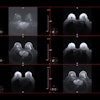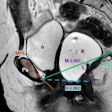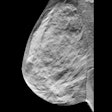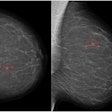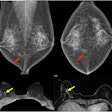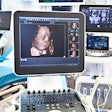MRI reveals the negative effects of preeclampsia on pregnant women's hearts and on the brains of their fetuses, according to research published in the April issue of Hypertension.
The results highlight MRI's benefits as a prenatal assessment tool, wrote a group led by Megan Hall, MD, of St Thomas' Hospital in London, U.K.
"As well as giving insight into the immediate pathophysiological impact of preeclampsia, [MRI] holds potential as a valuable tool for risk stratification both antenatally and when considering longer-term cardiovascular risk in women," it noted.
Preeclampsia is a disease of pregnancy that has both short- and long-term implications for the woman and fetus, Hall and colleagues wrote. But its exact impact isn't well understood. To address the knowledge gap, the investigators used MRI for maternal cardiac, placental, and fetal brain anatomic and functional imaging in a study that included a control group of 38 nonpregnant women and a group of 65 pregnant women divided into three categories: those with preeclampsia, those with chronic hypertension, and those with no medical complications.
All study participants underwent cardiac MRI; the pregnant women also underwent placental-fetal MRI (in total, the pregnant women had 78 MRI exams). For the cardiac scans, the researchers tracked structural, morphological, and flow information, and for the placental-fetal studies, they tracked placenta and fetal brain volumetrics and T2*-weighted imaging data.
Overall, the group found that those women with preeclampsia showed a higher left ventricular mass, which is associated with higher risk of cardiovascular disease. They also found that women with preeclampsia showed lower placental and fetal brain T2*-weighted imaging results.
"[Our] findings suggest altered oxygenation and microstructure in the placenta, which is associated with similar changes in the fetal brain, and identifies a specific pattern of remodeling in the maternal left ventricle that is associated with preeclampsia," the team wrote.
The study indicates that MRI could play an important role in tracking women with high-risk pregnancies, according to Hall's group.
"Although clinical fetal MRI is largely confined to the assessment of structural anomalies, there is evidence here of a potential role for other high-risk obstetric conditions," it concluded.
The complete study can be found here.



